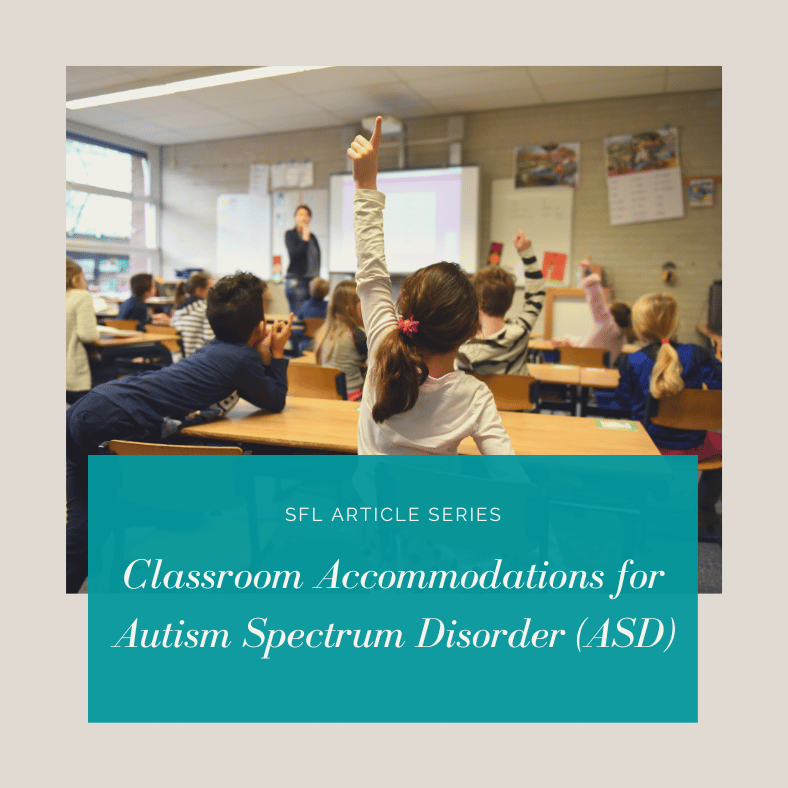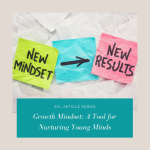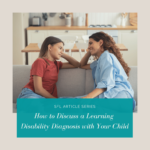No products in the cart.

Navigating the complexities of the classroom can be challenging for students with Autism Spectrum Disorder (ASD). We understand the unique hurdles these students face and are here to offer some practical strategies for teachers and parents dedicated to creating a supportive learning environment.
Understanding the Classroom Landscape for Students with ASD
Students with ASD encounter challenges in a traditional classroom setting. They may struggle with social understanding, behavior regulation, and communication difficulties, requiring additional support. Classroom routines may also cause frustration for both students and educators. Here is a curated list of effective strategies backed by research. If you are a parent, you may want to discuss these strategies with your child’s classroom teacher or ask about these or other accommodations as part of your child’s Individualized Education Plan or IEP.
Create a Structured Environment
- Establish Clear Routines: Provide visual schedules for predictable classroom activities.
- Alert to Changes: Give advance notice of schedule changes to help smooth transitions.
Enhance Comprehension Through Visuals and Manipulatives
- Use Visual Aids: Employ charts, diagrams, and pictures to clarify concepts.
- Incorporate Hands-On Activities: Utilize manipulatives for better understanding.
- Employ Multi-Sensory Approaches: Engage multiple senses to reinforce learning.
Individualized and Relevant Instruction
- Tailor lessons to student’s abilities and progress.
- Make connections to real-life situations for practical application.
Positive Reinforcement and Clear Communication
- Use Rewards and Incentives: Recognize and reinforce positive efforts and achievements.
- Offer Appropriate Feedback: Provide consistent, constructive feedback.
- Encourage Student-Teacher Interaction: Prioritize a communicative rapport between instructors and students.
Data-driven Instruction
- Utilize evidence-based teaching approaches and curriculums like Orton-Gillingham, SIPPS, SMARTS, and others.
- Practice ongoing progress monitoring using formal and informal assessments.
Additional Strategies for Parents
- Create a consistent learning environment at home and optimize the learning space by reducing sensory overload. Learn how to create a workspace optimized for learning.
- Provide choices to increase student engagement and control. Learn how to nurture independent problem-solvers.
- Make real-world connections when learning new concepts. See examples of incorporating math into everyday activities in a fun way!
- Consider the use of assistive technology.
- Support transitions between different activities with visual cues, timers, and verbal reminders.
- Allow short brain breaks during lessons for students to decompress. Try out these 5 brain breaks!
At Strategies for Learning, we partner with students and parents to overcome learning hurdles. We can help guide, support, and illuminate the path for your child’s educational journey. Whether it’s math or literacy mastery, content exploration, or honing executive functions, we can help! Schedule a free consultation today.
Related Resources
Looking for Academic Support and other Educational Services?
You can schedule a free initial consultation to learn more about our services. We will listen to your concerns, answer any questions, learn about the student’s needs, and help guide you through our new student intake process.






